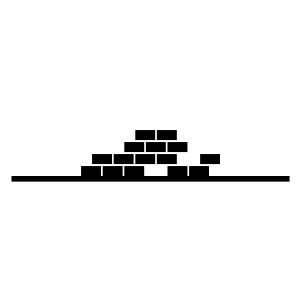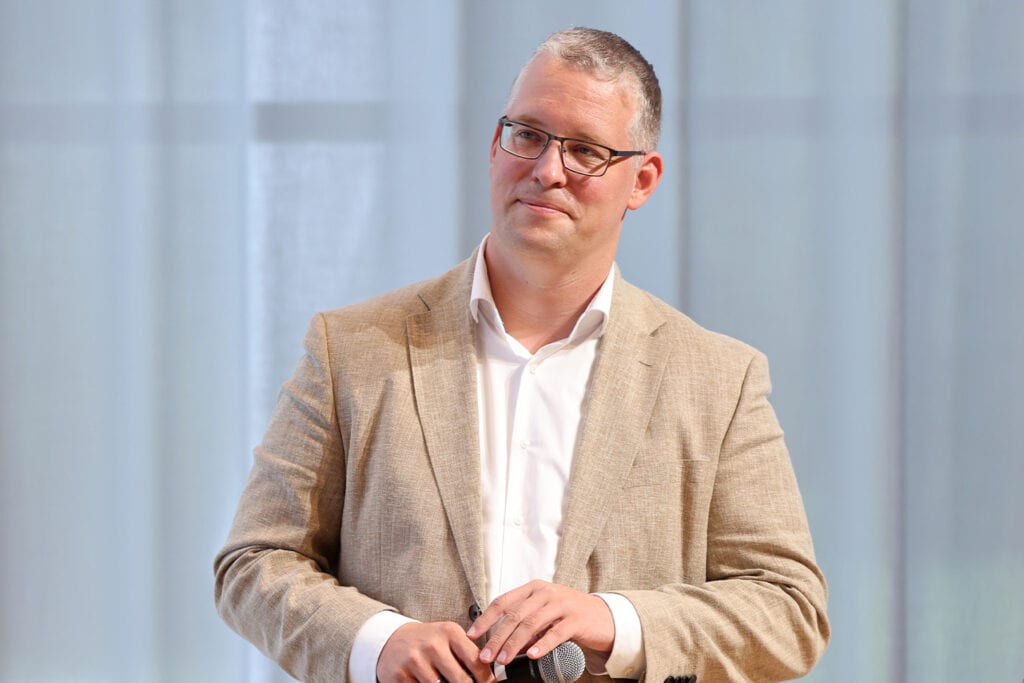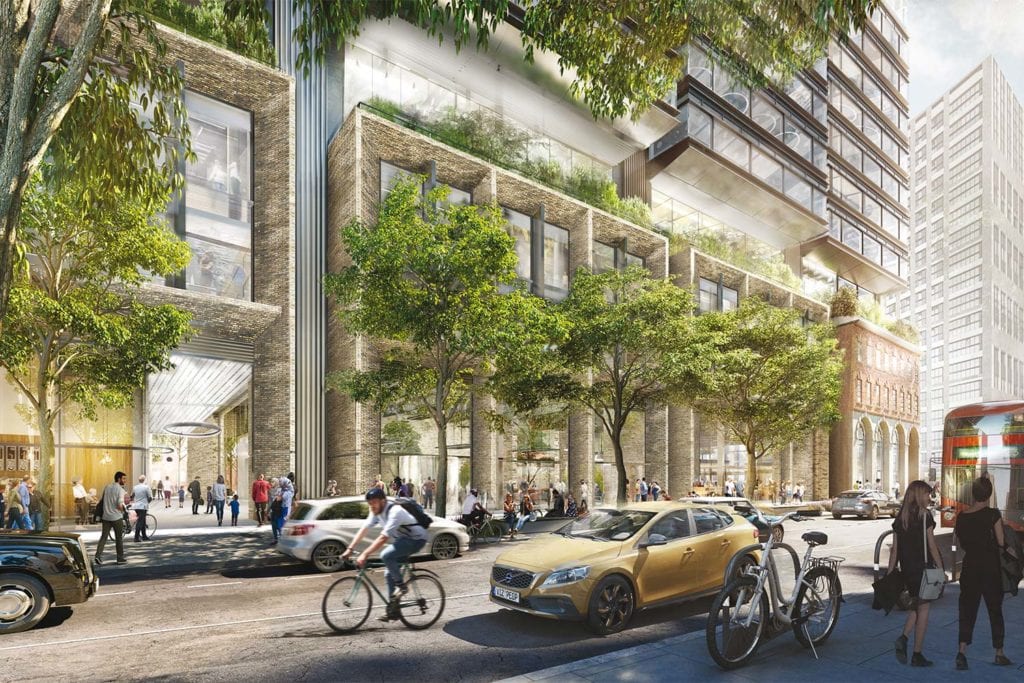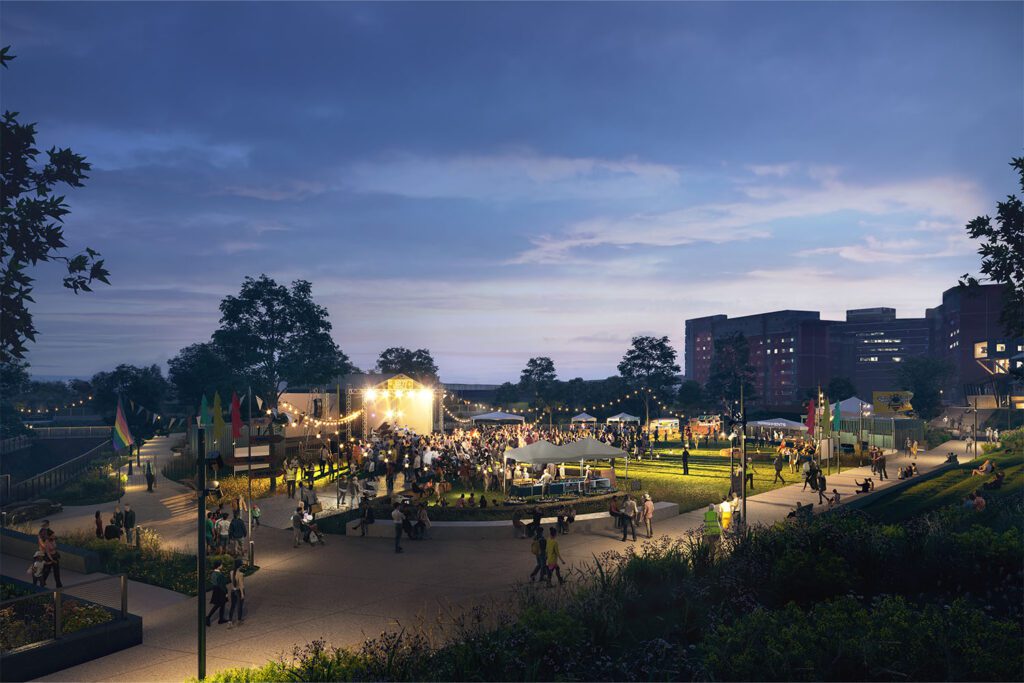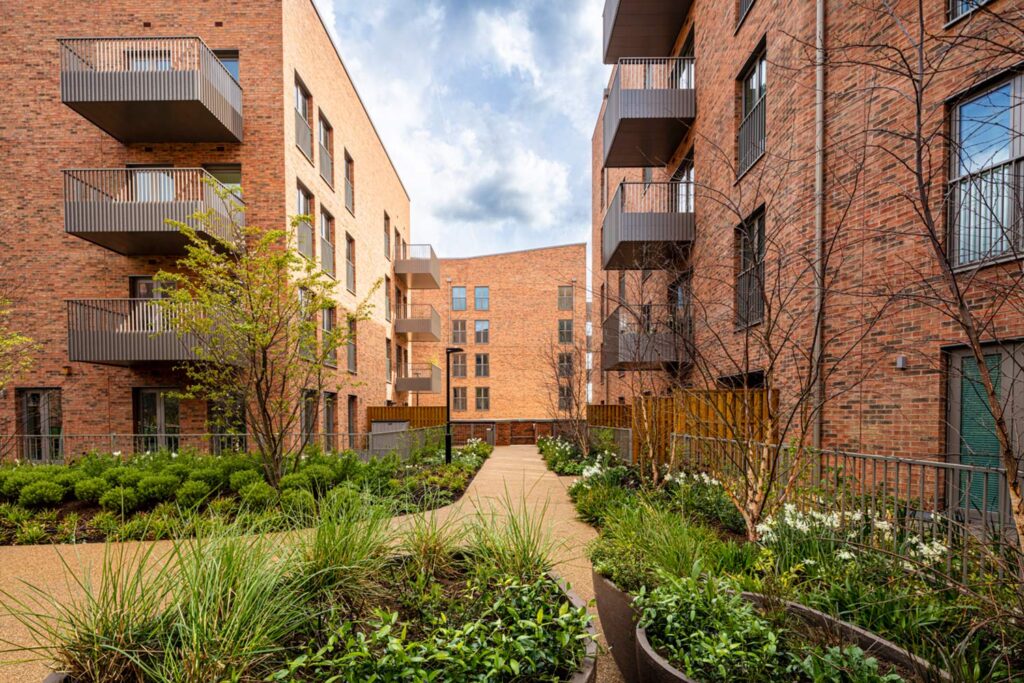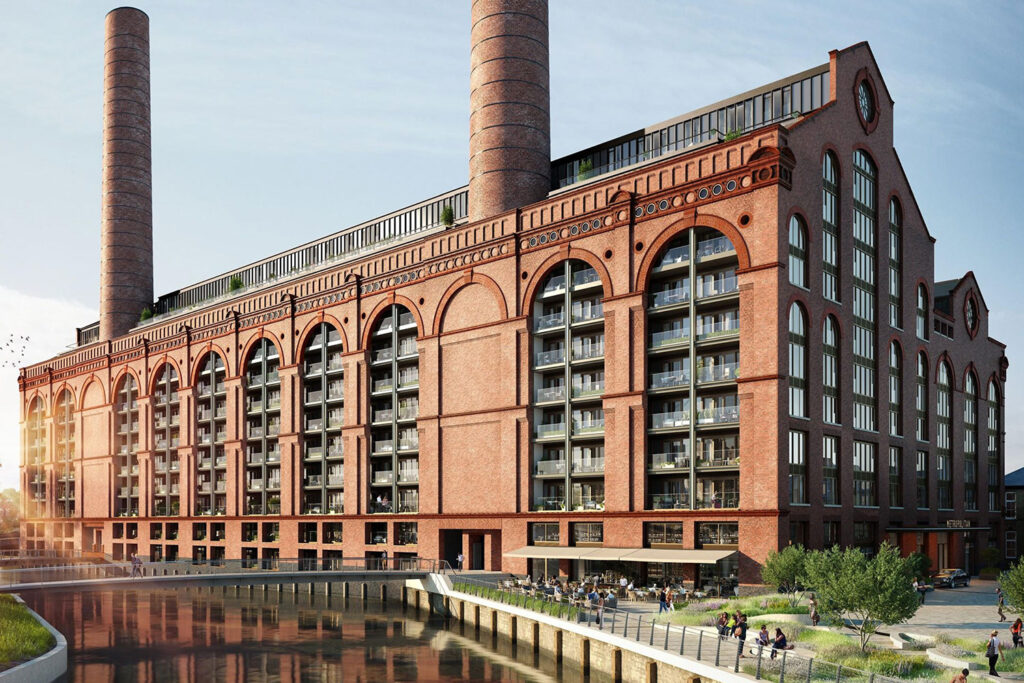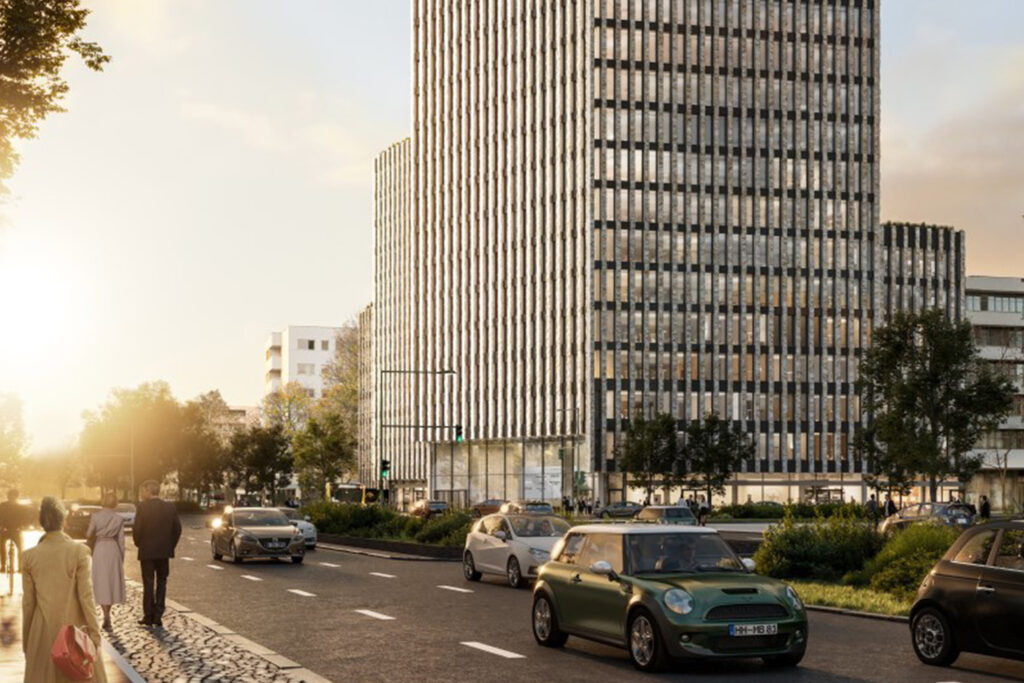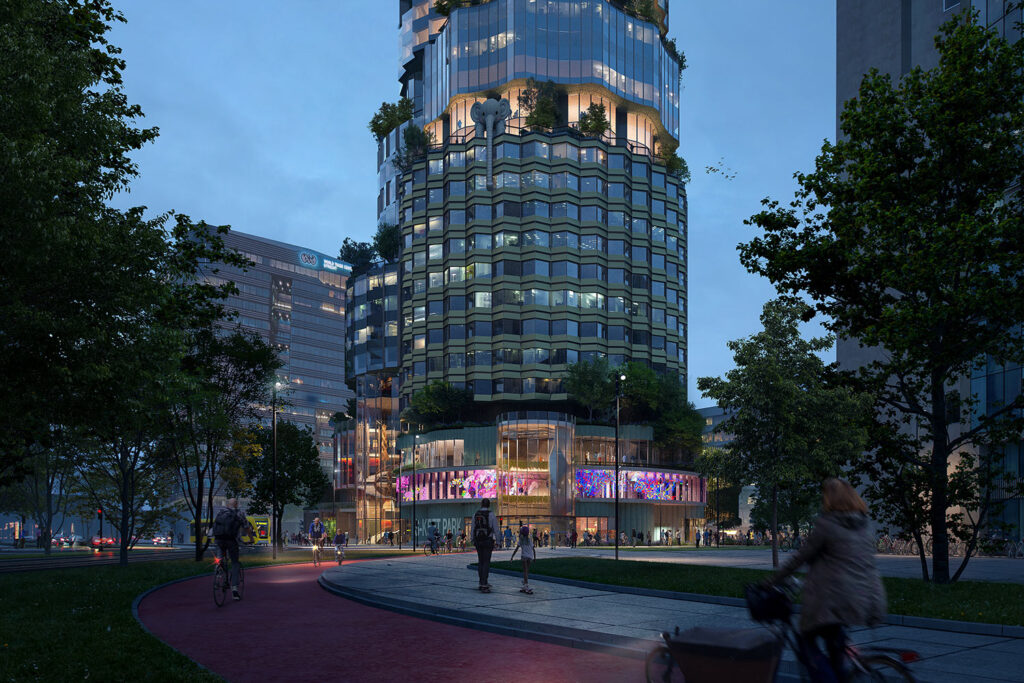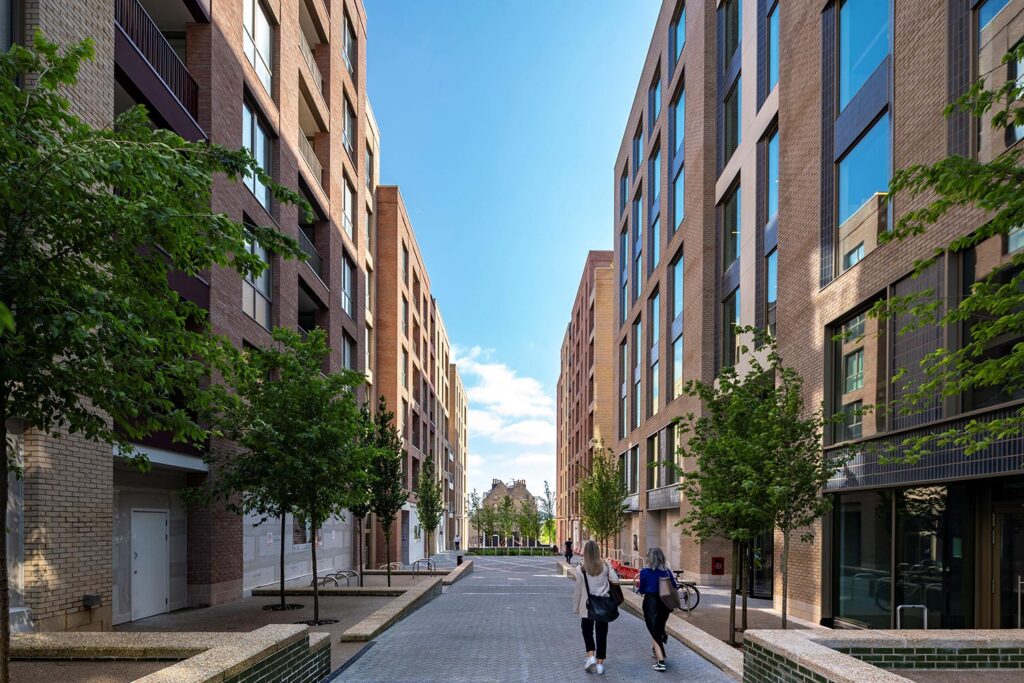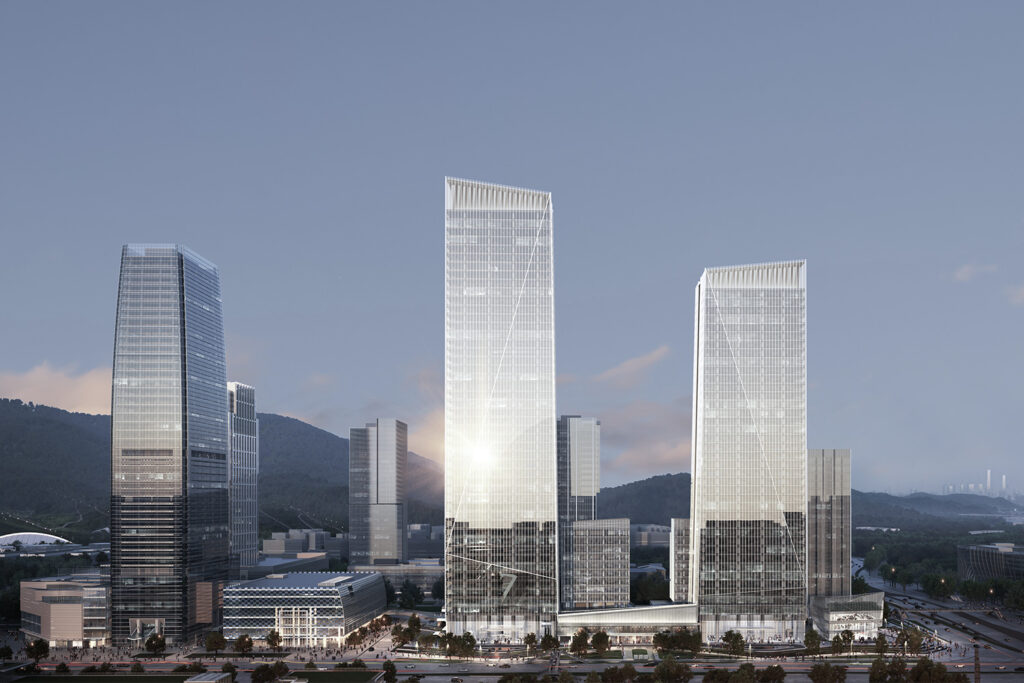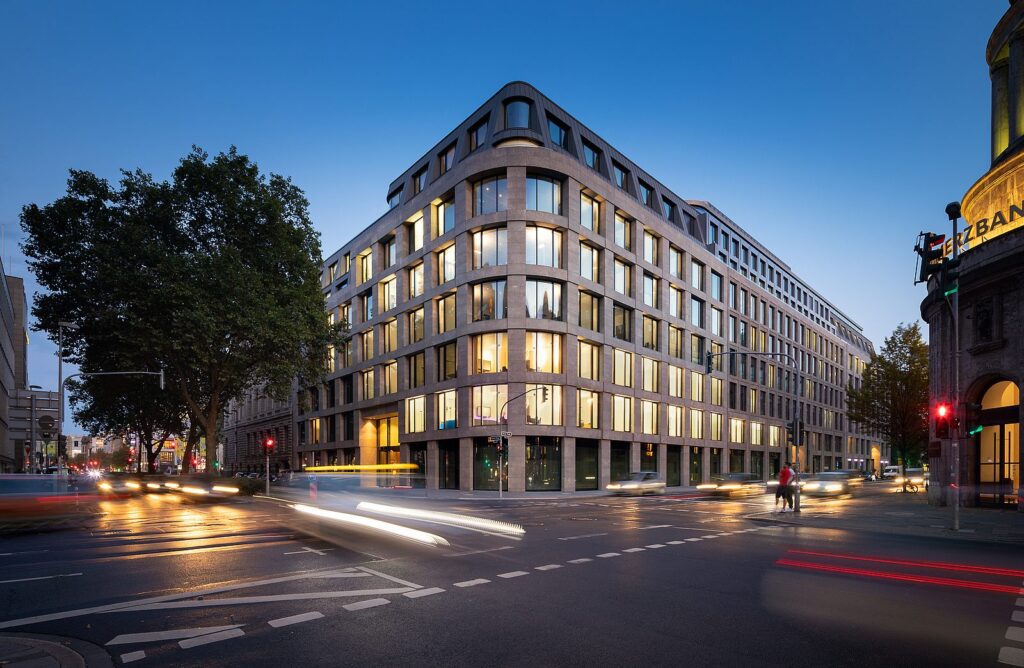
Kö-Quartier
Düsseldorf, Germany
Project details
Client
Hines Real Estate
Architect
msm Architekten
Duration
Completed 2020
Services provided by Buro Happold
Located in Düsseldorf, the Königsallee Boulevard is famous for its high end shopping and as a premier banking and consulting area. The project plays a key part in the rejuvenating of this district.
The Königsallee in its current urban layout dates back to the early 19th Century, and has seen a number of changes in its appearance and use since its beginnings. The quieter side of the boulevard is now being shaped for the future, with new developments designed to meet the needs of a burgeoning high-class business district. Focusing on the sustainability of the area, the Kö-Quartier is conceived to be sustainable, economically efficient and low energy.
With sustainability and economic value a key consideration for the client, we needed to focus on creating an energy efficient development that would benefit the local neighbourhood.
Thomas Kraubitz, Buro Happold
Challenge
The client’s brief is to develop a commercial district with a strong identity, embracing the area’s history while looking towards the future. The project involves reimagining existing buildings and creating new build extensions, so particular attention is being paid to the relationship between the historical patterns and new additions.
Key challenges included the need to predict changes to the site arising from the addition of a new underground line, which will provide the district with greater connections to the city.
Solution
This allowed us to better understand the emissions generated during the course of its life cycle. This in turn has informed our approach to reducing emissions further over time, using the new buildings as an incubator for continuous improvements.
The assessment also enabled our consultants to reduce the primary energy needs of the district. Our studies reviewed the use of drinking water, waste water and land use, ensuring optimal solutions across the whole site.
In order to ensure its long term value, the district is designed to have economic lifecycle costs, flexibility and adaptability as well as being a highly desirable location for tenants. By delivering a project that has low running costs while also providing an excellent standard of a contemporary office environment, we have been able to maximise the rental potential.
The Kö-Quartier development is carefully located to make use of public transportation, and pedestrian and cycle routes alike. It also looks at a number of public squares to enhance the experience of the people using it. Within the new spaces themselves, thermal, acoustic and air quality has been assessed to ensure the very best internal environment. By taking this approach, the design team can ensure that the project makes a positive contribution to the user and the community.
Our team used the German Sustainable Building Council (DGNB) framework to assess the quality of the sustainable design features of the development, as well as existing and new initiatives.
Thomas Kraubitz, Buro Happold

Value
With tenants including the Deutsche Bank and high end consultancies, the Kö-Quartier is a key site in one of the world’s leading banking districts. As well as thinking with a commercial head, the development has sustainability at its heart, and is the first banking development to receive DGNB Platin at District and Building level, the highest possible category.


